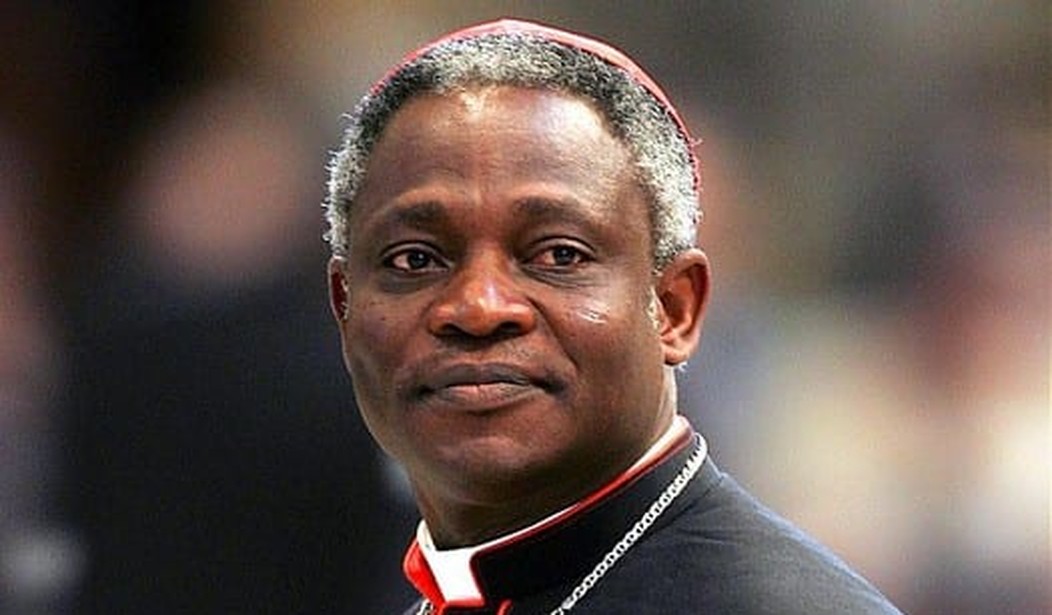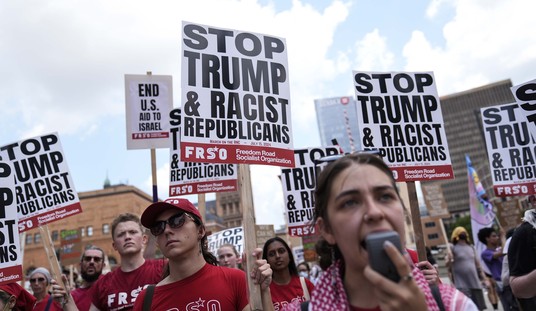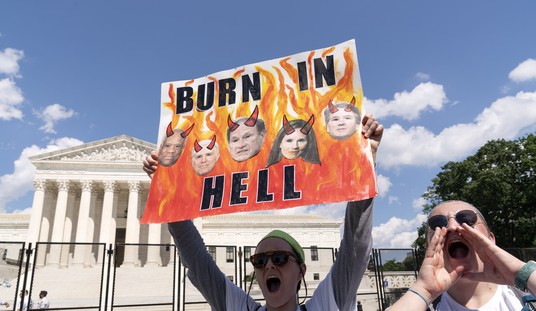When the College of Cardinals enters the conclave on Tuesday, more than the future of the Roman Catholic Church and its 1.1 billion worldwide adherents hangs in the balance.
The 115 diverse princes of the Church will begin a series of balloting to choose the next pope from among their own. Joseph Ratzinger was selected in 2005 as a transition figure to ease the church through the passing of John Paul II and move it forward, though Vatican watchers were buzzing then about the possibility of picking a head of the Holy See from outside Europe.
If the conclave reached south of Europe for Benedict XVI’s successor, it would be a move that could throw a roadblock in front of the spread of Islamic extremism in Africa.
Africa’s population of 158 million Catholics is growing by leaps and bounds, something assuredly not lost on Islamists in the north as they seek a safe haven and staging ground — and, as chillingly seen in Mali, a place to impose Sharia on the unwilling.
Al-Qaeda has had exceptional luck in forging alliances and building strong affiliations here. But a mobilization of the continent’s Christians — with the election of an African pope massively fueling the fire of conversion and stoking pride of non-Christians alike — could make the Islamists’ entrenchment all the more difficult at some critical face-off points, such as Nigeria and South Sudan.
It wouldn’t be just a matter of faith vs. faith, though: Even much of the Muslim population in North Africa have little tolerance for the brutal extremists who come trampling through their towns to impose Sharia. Timbuktu, the ancient city at the edge of the Sahara in Mali, is home to three great mud-brick mosques from its golden age as a center of Islamist scholarship and houses tens of thousands of priceless manuscripts in its libraries. Yet this central point of Islam only suffered under its 10-month occupation by Islamist militants.
Hellbent on turning northern Mali into an Islamist state, rebels teamed with al-Qaeda in the Islamic Maghreb to overrun the mysterious city. Ancient mausoleums, monuments and Islamic texts were destroyed, and those residents who didn’t flee were beaten for watching television or smoking. Women were forced to veil and music was banned.
In short, Timbuktu as they knew it was no longer. And the 94 percent Muslim country hailed the help of nearly 90 percent Christian France in pushing the Islamists back toward Algeria. Timbuktu celebrated by turning on the music, putting on short skirts, and hanging makeshift French flags to thank their liberators.
In Nigeria, which is 50 percent Muslim and 40 percent Christian, Boko Haram has been ferociously attacking churches and mosques that are seen as opposing the militants’ Sharia aims. Meanwhile, the world’s largest seminary is in Nigeria and seminaries across the country are so full they’ve had to turn away candidates.
Al-Shabaab has chucked grenades at churchgoers in Kenya. Islamist militants in Tanzania have destroyed churches.
“Christians on the frontiers of the world, in the trenches of the world, as has been noted in African countries and also in the Middle East, are a factor of balance, of reconciliation and of unity and not of conflict,” Vatican Secretary of State Cardinal Tarcisio Bertone said in April after 21 Christians were killed in attacks in Nigeria and Kenya.
And yet this ground zero where Islamic extremists are determined to establish deep roots would get a supercharge of faith, hope, and pride from the election of an African pope.
What would this translate to? For starters, an even larger Christian population. A more fervent population less tolerant of the Islamists’ Sharia plans as now they have a personal stake in the future of the Church. More investment — either private or from Rome — in the social services and community-building backbones that are currently compensating for toothless governments, thus fighting the blight that nourishes extremism.
And obviously church and politics aren’t immune from mixing, as seen with the protracted secession fight of predominantly Christian South Sudan from Muslim Sudan. This fight is far from over — in addition to disputed border regions, the Sudanese government is harassing Christians and destroying church buildings in an attempt to purify the country. One of the cardinals who will be electing the next pope, Archbishop of Khartoum Gabriel Zubeir Wako, escaped an assassination attempt in 2010 when an Islamist wielding a dagger charged the altar during Sunday Mass.
With every cardinal in the running come the first round of balloting, Zubeir included, what would be the options for an African pope?
Nigerian Cardinal Francis Arinze was favored as a papabile choice in 2005, but is now 80 years old. South Africa’s Cardinal Wilfrid Fox Napier, 71, is a no-holds-barred defender of Church orthodoxy who has been outspoken about the Vatican’s lack of attention to Africa. Cardinal Laurent Monsengwo Pasinya, 73, of the Democratic Republic of the Congo is a vocal defender of human rights who can passably speak 14 languages. Cardinal Robert Sarah, 67, of Guinea leads the Pontifical Council Cor Unum and is a staunch conservative. Nigerian Cardinal John Onaiyekan, 69, is a member of the Congregation for the Doctrine of the Faith. Oft-mentioned as a front-runner is Ghanian Cardinal Peter Turkson, 64, current president of the Pontifical Council for Justice and Peace, who has already irked liberals by showing a video on shifting Muslim demographics in Europe in a presentation last year.
“The point was not to be anti-Islam. Absolutely not! The point was to highlight the demographic situation as a result of the anti-life tendency and culture in the Western world where, as I see it, there is a great need to apply the values of the Kingdom of God and of the Gospel to the social order,” Turkson told La Stampa afterward. “I showed the video to illustrate this reality in the Western world and to emphasize that if we do not evangelize the social order, it is capable of giving rise to all kinds of problems for society.”
Cardinals will be weighing matters of Church administration, doctrine, ecclesiastic outreach, and 21st century challenges in the conclave. But one hopes that the potential world-changing impact of a leader who would be a rallying point on this battleground continent will cross the cardinals’ minds, as well.









Join the conversation as a VIP Member